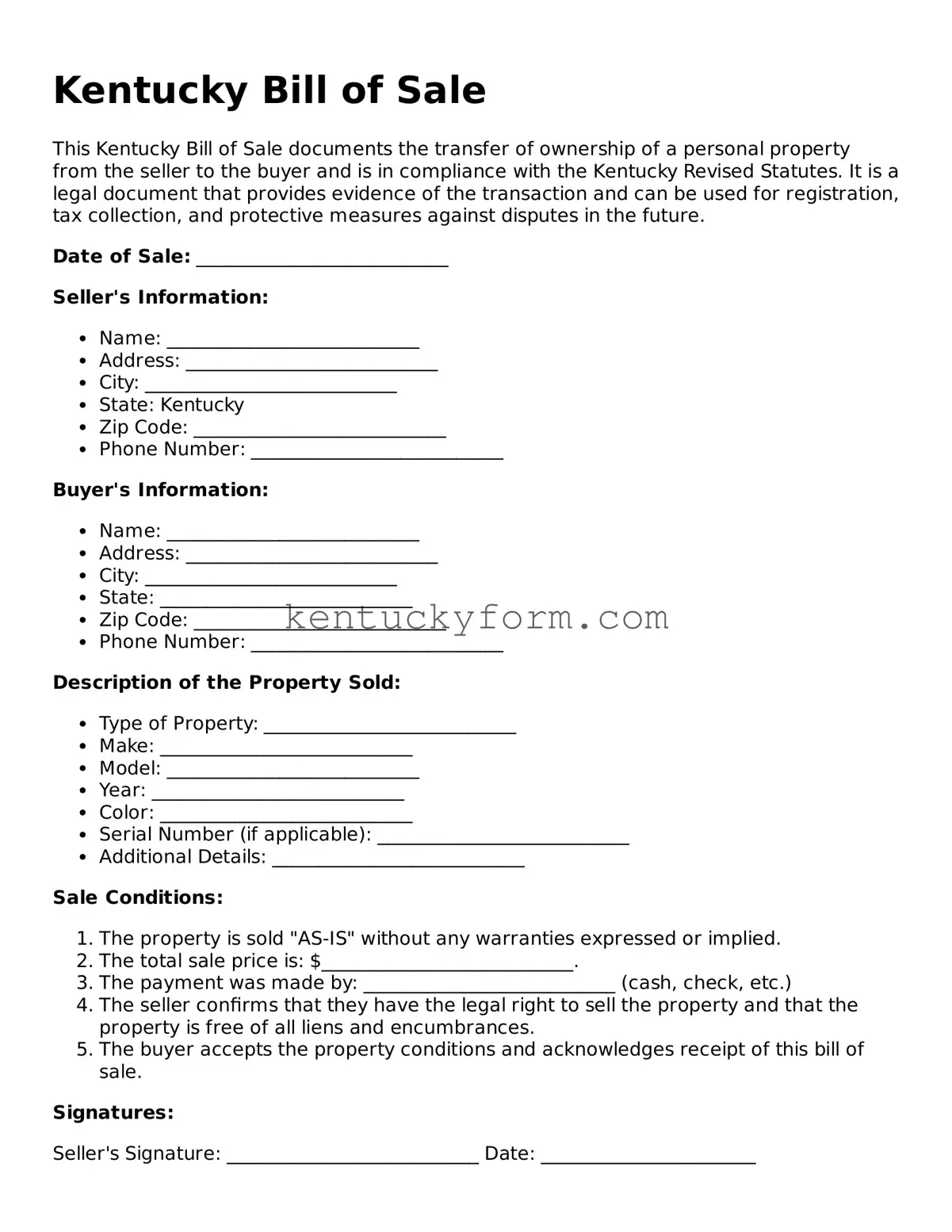The Kentucky Bill of Sale form shares similarities with a Vehicle Title Transfer form. Both are crucial documents in the process of transferring ownership of a property, in this case, a vehicle, from one party to another. Just like a Bill of Sale, a Vehicle Title Transfer form acts as a legal document that officially documents the change of ownership and is necessary for the registration process. However, while a Bill of Sale outlines the agreement details, including the sale price and condition of the vehicle, the Title Transfer specifically changes the vehicle's legal ownership in official records.
Similar to the Kentucky Bill of Sale, a Warranty Deed is used in real estate transactions to transfer ownership of property. Both documents serve as proof of sale and transfer but are applied in different contexts; the Warranty Deed is exclusively for real estate. It guarantees that the seller has the right to sell the property and there are no claims or liens against it, providing the buyer with greater protection than a Bill of Sale typically offers for personal property or vehicles.
A Quitclaim Deed, while different in the level of protection it offers, is another document similar to the Kentucky Bill of Sale. It is used to transfer any interest in real property that the owner, or "grantor," may have, without guaranteeing that the title is clear. Like a Bill of Sale, a Quitclaim Deed documents the transfer of ownership, but it is most often used between family members or to clear a title and does not assure that the grantor has valid ownership like a Warranty Deed does.
The General Receipt is another document that shares a fundamental similarity with the Kentucky Bill of Sale in that it provides evidence of a transaction. Typically, a receipt outlines the specifics of a sale including the date, parties involved, and amount paid, similar to what a Bill of Sale specifies. However, receipts are more commonly used for smaller transactions and do not typically involve the legal transfer of ownership of items with a title, like vehicles or property.
A Promissory Note is similar to a Bill of Sale form in terms of its role in documenting a transaction. However, instead of detailing the sale and transfer of ownership of an item or property, a Promissory Note outlines the terms of a loan between two parties. It specifies the borrowed amount, interest rate if applicable, and repayment terms. Like a Bill of Sale, it serves as a legal document; but it focuses on the agreement to repay a debt rather than the sale of an item.
Lastly, the Sales Agreement shares many characteristics with the Kentucky Bill of Sale. Both serve as legally binding documents that outline the terms of a sale between a buyer and a seller. However, a Sales Agreement often contains more detailed provisions than a simple Bill of Sale, including warranties, specific conditions of the sale, and future obligations of both parties. It is typically used for more complex transactions, where a greater level of detail and protection is necessary.

